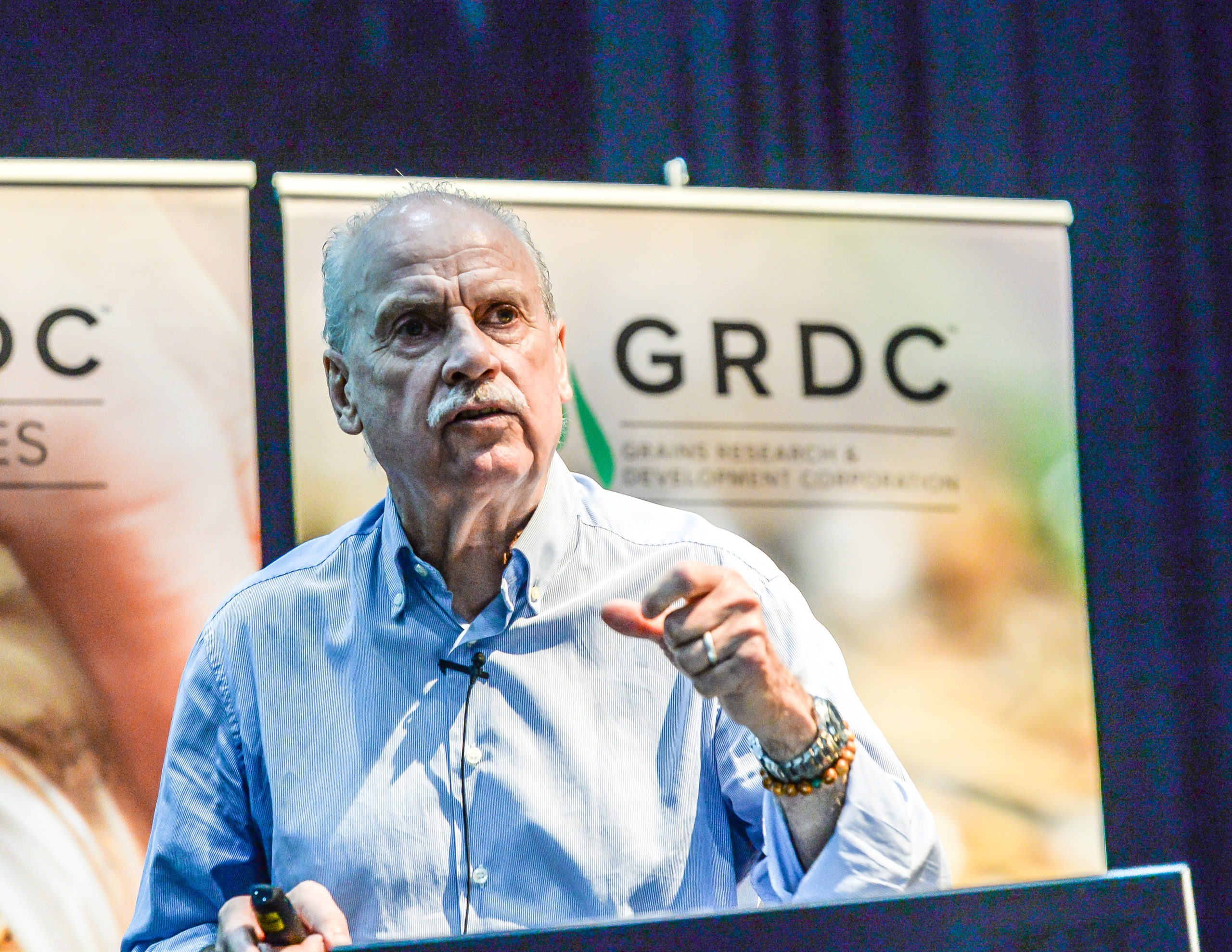

The ‘moving target of sustainable agriculture’
February 24, 2020
Our Board Member, Professor Tim Reeves, recently addressed a GRDC Update meeting held at Wagga, responding to the question “Is sustainable intensification of cropping systems achievable?”

In opening, he noted that he was drawing on over 50 years’ experience working on sustainable agricultural systems, in Australia and in many countries around the world. And in closing he offered his sincere thanks to his scientific colleagues and to the farmers who he has worked with for that period who are continuing the pursuit of the ‘moving target of sustainable agriculture’.
It is that moving target that the Crawford Fund’s training and NextGen activities have squarely in their sights – for food and nutrition security, for economic prosperity, for resilience in the face of climate change, for women’s empowerment and more.
His address is here.
He concludes:
In this paper I have addressed issues with current practices and identified potential solutions for their improvement and better contribution to sustainable intensification of our agricultural systems. These changes are necessary if our farms are to remain productive, profitable and sustainable.
The clear message from my long experience is that agricultural sustainability is a ‘moving target’ and that no single system has remained sustainable, for one reason or another and nor will it, now or in the future.
It is equally clear to me that a new ‘revolution’ of diversified farming based on the effective integration of crops, pastures, livestock, shrubs and trees together with diverse practices, is required to make farms more resilient financially, and to the increasing challenges of climate change and climate extremes. To achieve this resilience, it is also an imperative to build soil C and N content and soil health generally.
It also raises a further important point for those of us who are agronomists, where the role has evolved from a productivity focus in the past, to the current and future emphases on productivity, profitability, compliance and sustainability.




